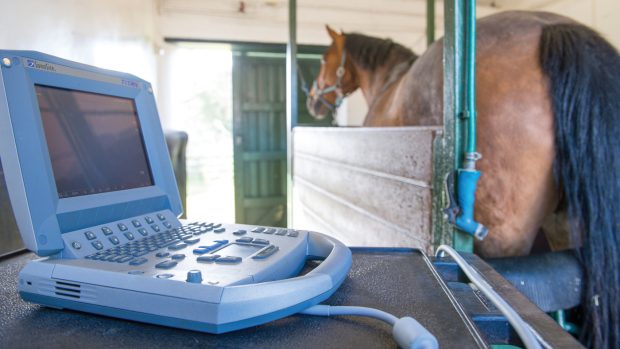Concerns around the trade of horses and germinal products under new EU animal health law have been eased – but export issues rumble on.
After Brexit, under EU legislation, the UK and EU countries had to apply to each other for third-country status to continue to trade breeding animals and products such as semen and embryos. This status means horses bred in the EU can be sold to the UK as registered. Unregistered horses have higher import taxes and are granted lower health status, which can affect the ability for horses to travel abroad for competitions.
The UK, and all UK studbooks, were granted this status by the European Commission in December, but EU countries had to apply to Defra by 30 June (news, 22 Apr 2021).
Defra has now published the list of recognised EU breeding societies in countries granted the status – so may continue to trade products and registered horses with the UK. The list of 23 countries includes Germany, France, and the Netherlands.
A Defra spokesman told H&H the Government and delegated authorities approved all applications that were received.
World Breeding Federation vice-president Eva-Maria Broomer told H&H Defra has been keeping UK studbooks in the loop on third-country status recognition, and the list of approvals looks “pretty complete”.
“There are no reasons in the legislation why the trade in horses and germinal products should not continue smoothly, apart from the need to raise the relevant paperwork, which is the thing that seems to be giving everyone headaches,” said Dr Broomer.
“Any difficulties in import and export of germinal products are not due to the fact that we are no longer able to trade in them, but that there is a lot of paperwork and new legislation to digest, and everyone – not just the breeders and semen agents but also the border officials and couriers, are getting used to the new environment.”
A spokesman for Stallion AI Services told H&H exporting to the EU has become a “minefield” since Brexit, and the company has stopped exporting chilled semen to the EU as a result.
“The issue we’re having with exporting is there is a hard border, the customs control is very strict in Germany and France for example. They are checking absolutely everything and there is a lot of additional paperwork, and it’s not always clear what’s needed by each individual country as they all seem to have different requirements. It can vary, you’ll send one shipment and it will be fine, they’ll ask for paperwork which you provide, and the next time they’ll ask you for something different so it’s very tricky,” said the spokesman.
“We were able to ship last year and have always been able to before. We get the health papers sorted so we’re able to fulfil that side of things, but it’s the couriers and the backlogs in the warehouses. It doesn’t seem fair, we’re importing quite happily but we can’t export our own goods and that’s a real shame to the European market.”
You might also be interested in:

Breeding and competition horses affected by new EU animal health law

Concerns as European studbooks refused UK permission since Brexit

Subscribe to Horse & Hound magazine today – and enjoy unlimited website access all year round
Horse & Hound magazine, out every Thursday, is packed with all the latest news and reports, as well as interviews, specials, nostalgia, vet and training advice. Find how you can enjoy the magazine delivered to your door every week, plus options to upgrade your subscription to access our online service that brings you breaking news and reports as well as other benefits.




